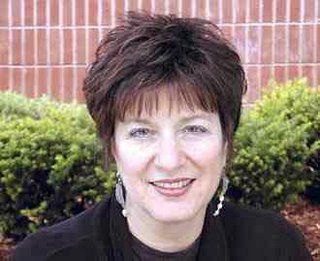
Jean Trounstine: A Writer Who Has Braved Many Journeys.
Jean Trounstine is a writer who has taught in prison, survived cancer, has been in a long and successful marriage, and has had the good graces to write about it. Trounstine is a professor of Humanities at Middlesex Community College in Lowell, Mass., and she has worked extensively in the prison system directing inmates in theatrical productions including “The Merchant of Venice” at MCI / Framingham. This experience was the basis for her book “Shakespeare Behind Bars: The Power of Drama In A Women’s Prison.” She is the co-author of “Finding A Voice: The Practice of Changing Lives Through Literature.” Most recently she co-edited the anthology “Why I Am Still Married.” ( Hudson Books)
Doug Holder: You have said that working in prisons has changed you. How?
Jean Trounstine: It’s a hard question but it’s a good one. I always say to my students just going into a prison changes you. You see something that you never imagined to be true. That is the way people are treated behind bars. You just never think about the way people are treated in prison. You never think about what happens to them in prison. At least I didn’t. The women I met behind bars were often wonderfully talented. They had stories and had situations in their lives that lead up to pretty good reasons why they were behind bars. I wanted to help them tell their stories, be it through theatre or writing. I was moved by their stories and I turned into an advocate for women in prison. I wanted to find out about them. A lot of people are behind bars for really lousy reasons. Women serve longer sentences than necessary to rehabilitate them. After a certain time prison becomes counterproductive.
DH: Why did you produce Shakespeare’s “Merchant of Venice”?
JT: I think Shakespeare is something that women in prison thought they couldn’t do. I think you have to make Shakespeare accessible. I think the stories of Shakespeare are incredibly dramatic and traumatic. They are the stories of these women’s’ lives. The questions they live with are in Shakespeare’s plays.
DH: Can you talk about the collection of poetry you penned “Almost Home Free,” that deals with your experience with cancer?
JT: I just had to write it. The writing happened to come out in poetry. When I looked back it wasn’t about illness; it was about family. Illness was a big way to get to questions like mortality. My perceptions of the world were intensified during my creative time. I saw the ironies of everything. Irony is what drove me to poetry. Someone once asked me when I was walking down the hall: “Is that your hair or a wig?” My perceptions of how we live and the way we speak to each other were intensified.
DH: Did cancer make you a better poet?
JT: Well…I tend not to write poetry unless I am driven to. That’s different than my other writing. There is something about poetry that gets to the core for me. I felt invincible up to this point. I was very healthy. My poems are about the fragility of life.
DH: In a poem you wrote “Language of Cancer” you deal with the arcane clinical jargon we use to describe the disease. Do you feel we have to get beyond the clinical language to get to the emotional core?
JT: When we try to connect with someone with cancer the language is a barrier to really connecting with the person. And that ‘s how it was for me. There is a lot of masking that goes on if you are not careful.
DH: You were a contributing editor to the anthology “Why I’M Still Married” with Karen Propp. Do you think this is a question that a lot of us ask ?
JT: I do. I’ve heard people say “I don’t ask that question because I adore my wife or husband, etc…” But for most people, especially for women, they ask that question. Women get sicker; men apparently do better in marriage. Each essay tackles something. Challenges to the marriage. We tried to get people to think deeply about marriage.
DH: Do you think we enter marriage with blinders on?
JT: Absolutely. It’s a tough thing marriage. But I think it is a good thing; it stretches us. I wasn’t able to meet the challenge of my first husband’s heart attack. But today if my husband had a heart attack I would be able to handle it.
DH: Why did you use women writers for this essay anthology?
JT: We wanted writers because we wanted well-written essays. I think there is diversity in the work, in terms of background, culture, age, etc… We did try to get men. We would get responses like; “I’m not brave enough to write this essay.” Our editor told us that men don’t read these types of things. It’s sad really. I think it is a good book for people who are getting married.
DH: Were there any surprises when you were editing this book?
JT: Open marriage was a surprise. It surprised me that I found myself pulling away from it. I didn’t like it. But then I came to understand it.
DH: How does your teaching fit with your writing?
JT: I love teaching. I feel very connected to it.
DH: Any future projects?
JT: A memoir of growing up German/Jewish in Ohio.
Doug Holder/Ibbetson Update


